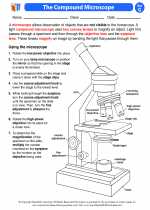Space
Space, also known as outer space, is the vast expanse that exists beyond Earth and its atmosphere. It is a fascinating and mysterious realm that has captivated human curiosity for centuries. Studying space involves exploring the universe, including celestial bodies such as planets, stars, galaxies, and other astronomical phenomena.
Key Concepts
- Gravity: The force that attracts objects towards each other. Gravity is responsible for keeping planets in orbit around stars and for forming larger structures such as galaxies.
- Cosmology: The study of the origin, evolution, and eventual fate of the universe.
- Astronomy: The scientific study of celestial objects and phenomena that originate outside the Earth's atmosphere.
- Space Exploration: The investigation of outer space using space technology and spacecraft.
- Black Holes: Regions of space where gravity is so strong that nothing, not even light, can escape from them.
- Exoplanets: Planets that orbit stars outside our solar system.
Study Guide
- What is the force responsible for keeping planets in orbit around stars?
- Define cosmology.
- What is astronomy?
- What is space exploration?
- Explain black holes.
- What are exoplanets?
Answer: Gravity is the force responsible for keeping planets in orbit around stars.
Answer: Cosmology is the study of the origin, evolution, and eventual fate of the universe.
Answer: Astronomy is the scientific study of celestial objects and phenomena that originate outside the Earth's atmosphere.
Answer: Space exploration is the investigation of outer space using space technology and spacecraft.
Answer: Black holes are regions of space where gravity is so strong that nothing, not even light, can escape from them.
Answer: Exoplanets are planets that orbit stars outside our solar system.
Learning about space opens up a universe of possibilities and can inspire a sense of wonder and awe. Whether it's the study of distant galaxies, the search for extraterrestrial life, or the exploration of our own solar system, the quest to understand space continues to push the boundaries of human knowledge and imagination.
[Space] Related Worksheets and Study Guides:
.◂Science Worksheets and Study Guides Seventh Grade. The World of Life Science

 Activity Lesson
Activity Lesson
 Worksheet/Answer key
Worksheet/Answer key
 Worksheet/Answer key
Worksheet/Answer key
 Worksheet/Answer key
Worksheet/Answer key
 Worksheet/Answer key
Worksheet/Answer key
 Vocabulary/Answer key
Vocabulary/Answer key
 Vocabulary/Answer key
Vocabulary/Answer key
